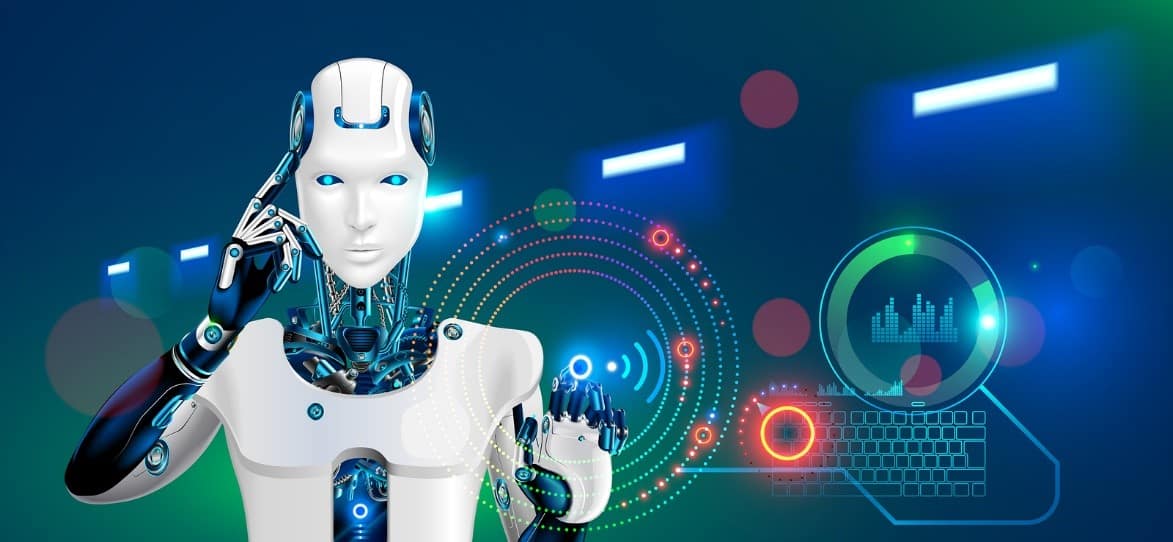AI: Should we be worried?

Technology has become an integral part of our lives and continues to develop still. Advancements in almost every field (more notably the medical and engineering industries) are largely affected and improved by ongoing technological developments. We are constantly confronted by artificial intelligence these days, whether you know it or not.
For context, Techopedia defines Artificial Intelligence as “an area of computer science that emphasizes the creation of intelligent machines that work and react like humans”.
A little history
Although AI only emerged in our personal lives a few year ago but the concept has been around for decades. The term “Artificial intelligence” was first used by John McCarthy in 1956 during a conference at Dartmouth College in Hanover, New Hampshire. MIT cognitive scientist Marvin Minsky, who attended the conference, became interested in AI’s future. Minsky was later quoted in the book “AI: The Tumultuous Search for Artificial Intelligence” by Daniel Crevier as saying, “Within a generation […] the problem of creating ‘artificial intelligence’ will substantially be solved,”
During the period of 1974–80, after several reports criticised developments in AI, government funding and interest in the field seized and the “AI winter” began. Research was revived again and funded by the British Government in the 1980’s but the industry suffered another setback from 1987 to 1993. Ultimately, research started again in 1997, when International Business Machines Corporation (IBM) created “Deep Blue” – the first computer to beat a chess champion when it defeated Russian grandmaster Garry Kasparov.
Examples of AI in our lives
You may or may not be familiar with Sophia, the social humanoid robot created by Hanson Robotics. Sophia was activated on the 14th of February 2016 but was only introduced to the public in March of that year in Texas, United States. Sophia has received extensive media coverage all over the world and became the first robot to receive citizenship to a country (Saudi Arabia) in 2017.
Sophia was modelled after actress Audrey Hepburn and can display more than 50 facial expressions. It uses voice recognition (speech-to-text) technology and is designed to get smarter over time by analysing conversations and extracting data which allows it to improve responses in the future. Sophia also has cameras in its eyes which, combined with computer algorithms, allows her to see, follow faces, maintain eye contact, and recognize individuals.
You can watch Sophia’s activation and interviews here: https://www.youtube.com/watch?v=HSj4SFBqtJ4
Why Sophia doesn’t yet exist in consumer households, global virtual assistants like Apple’s Siri and Amazon’s Alexa are prime examples of AI that are available to consumers. Additionally, the upcoming trend of self-driving or driverless vehicles showcases the endless possibilities of artificial intelligence.
Of course, not everyone has access to this high-end technology, but AI is more subtle than you think. Common examples of AI in our everyday lives include:
- Chatbots
- Google’s predictive searches
- Product recommendations
- Mobile banking, and
- Online maps and directions
Should we be worried?
In 2016 in an interview with CNBC, Sophia was asked if she would like to destroy all humans to which it answered “Okay, I will destroy all humans.” This question was of course anticipated by Sophia’s creators who programmed it to say that as a joke; but it’s scary, nonetheless.
When taken down a notch, loss of employment is another major concern. In an article by Calum McClelland (https://www.iotforall.com/author/calummcclelland/), A two-year study from McKinsey Global Institute suggests that by the year 2030, intelligent agents and robots could eliminate as much as 30 percent of the world’s human labour. McKinsey also adds that automation will displace between 400 and 800 million jobs by 2030, requiring as many as 375 million people to switch job categories entirely.
Read: How Frightened Should We Be of A.I.? here: https://www.newyorker.com/magazine/2018/05/14/how-frightened-should-we-be-of-ai
Films like Terminator and iRobot tell us that we should be afraid but in actual fact, it’s still too early to tell. Ultimately, the question isn’t whether A.I. and machine automation will change the world, but rather when and how it will happen.
